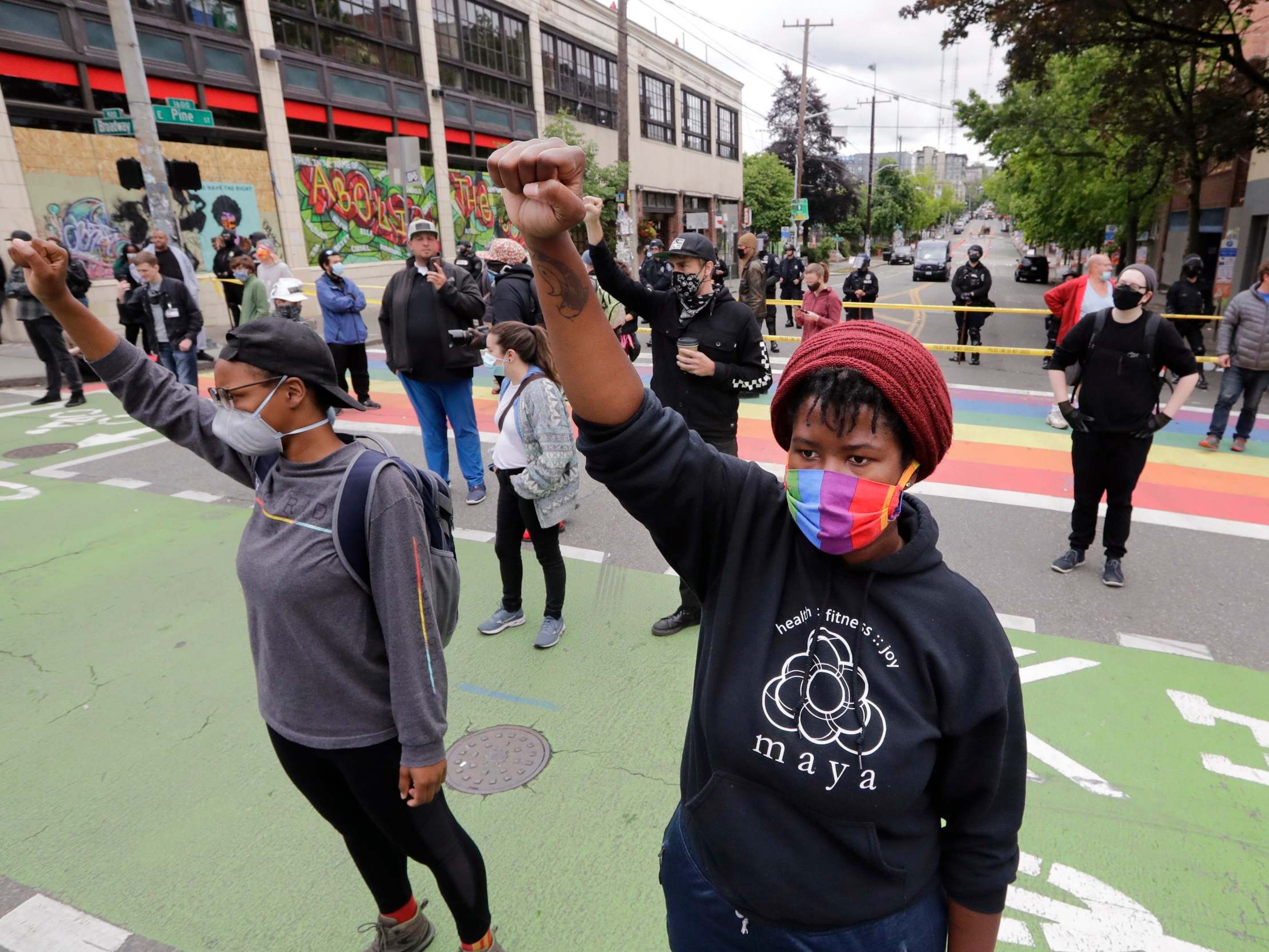The attacks on journalists in the US are unlike anything I’ve ever seen in my career
I’ve heard that we are pitied by other countries. But what I say to the world is: don’t pity us, help us

Your support helps us to tell the story
From reproductive rights to climate change to Big Tech, The Independent is on the ground when the story is developing. Whether it's investigating the financials of Elon Musk's pro-Trump PAC or producing our latest documentary, 'The A Word', which shines a light on the American women fighting for reproductive rights, we know how important it is to parse out the facts from the messaging.
At such a critical moment in US history, we need reporters on the ground. Your donation allows us to keep sending journalists to speak to both sides of the story.
The Independent is trusted by Americans across the entire political spectrum. And unlike many other quality news outlets, we choose not to lock Americans out of our reporting and analysis with paywalls. We believe quality journalism should be available to everyone, paid for by those who can afford it.
Your support makes all the difference.This fall, for the first time, my journalism students returning to New York University will be advised not to report on protests in person because it’s too dangerous. Yet covering citizens when they march in the streets is a basic tenet of reporting in a free society.
Sadly, the caution for the safety of our young charges is well advised. Journalists in America are under attack by law enforcement breaking up peaceful protests with tear gas and rubber bullets who are intentionally and specifically targeting reporters.
The dangers of coronavirus go without saying – but all of the public is affected by this pandemic. The occupational hazard in America today is how police nationwide have arrested, tear-gassed, rubber-bulleted, chased and interfered with reporters covering Black Lives Matter marches and encampments to oppose the racist treatment and deaths of African Americans by police, most famously George Floyd in Minneapolis on 25 May.
In 2020, more than 470 police aggressions have been recorded against journalists, according to the US Press Freedom Tracker. We’re only halfway through this year, yet police have arrested a record 44 credentialed journalists, compared to nine in 2019, 11 in 2018 and 38 in 2017. A third of those journalists face criminal charges, as well as confiscation of their notes and photo equipment, which will prevent them from getting back to reporting on the streets. They include the Texas photojournalist Alan Pogue, a former Vietnam combat medic who was taken into custody while documenting police arresting marchers outside Donald Trump’s campaign rally in Tulsa, Oklahoma, on 20 June.
The stories of police attacks on journalists are harrowing – and unlike anything I’ve seen or heard of in the US in three decades as a journalist since starting out at the Chicago Tribune in the late 1980s. Back then, old-timers lipped their cigarettes at the city desk and told war stories about their days getting head-bashed covering the protests outside the 1968 Democratic National Convention. That’s when I first heard the term “flak jacket”, from a gnarled veteran journo bragging that he always carried one in his car trunk. Just in case. I thought that was just a bit romantic – too much of the old days.
Not anymore. In Minneapolis, there were the Los Angeles Times reporters in their flak jackets marked “PRESS” who had to scramble over a wall to escape police gas and rubber bullets. There’s the Reuters team that escaped rubber bullets, and the unluckier freelance photojournalist Linda Tirado, who lost an eye. “I was aiming my next shot,” she recalled, “then my face exploded”. Her experience was documented by the Reporters Committee for Freedom of the Press, in a letter signed by 115 media and press organisations explicitly objecting to police targeting journalists in Minneapolis.
In my own city, we at the Deadline Club – the New York chapter of the Society of Professional Journalists – have officially objected to police assaulting and harassing journalists, like the NYPD cluster who encircled, manhandled and cursed out two Associated Press reporters, yelling at them: “Get the f**k out of here, you piece of s**t.”
Similar scenes of police are playing out nationwide – and it’s no accident.
The dog whistle to law enforcement on how to treat the press comes from the top. Expanding from the broader “fake news” derision, President Donald Trump has been dialling up his pitch to branding journalists “the enemy of the people”. That’s a tune historically heard from fascist and authoritarian leaders like Stalin, priming the public to turn on the Fourth Estate, long recognised as the public’s watchdog.
When these United States were founded to form a more perfect union separate from monarchal England, the very First Amendment to the US Constitution was passed to protect free speech and free assembly, specifically naming freedom of the press for safeguard. Since then, numerous court cases have upheld the right of journalists to report and record police in action – and government activity.
This November, Americans will vote in a momentous presidential election. Amid the pandemic, journalists will be needed on the ground more than ever, considering the fear, controversy and difficulties that plagued the recent election primaries with surging demand for mail-in ballots, long lines because of reduced numbers of polling places and a shortage of poll watchers and workers – many of whom are older, so stayed home.
I’ve heard that nations from Ireland to Australia are pitying us. Don’t send pity. Send poll watchers. Send more journalists.
Jessica Seigel is an adjunct professor of journalism at New York University’s Arthur L Carter Institute and a vice president of the Deadline Club-Society of Professional Journalists. Follow her on Twitter @jessicaseagull
Join our commenting forum
Join thought-provoking conversations, follow other Independent readers and see their replies
Comments